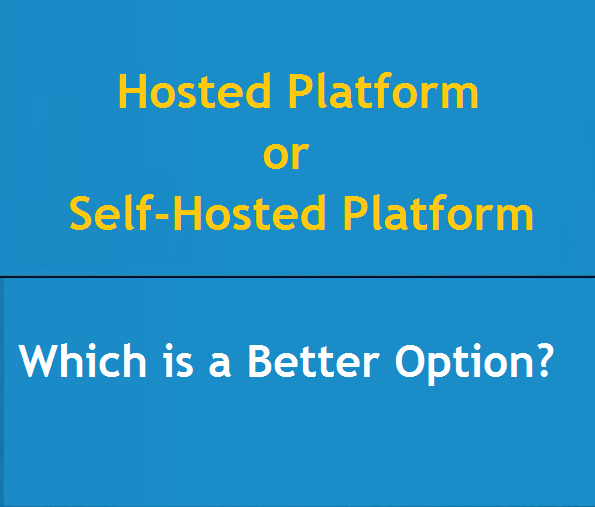Whether you should choose a hosted platform or host the website on your own is a decision that largely depends on what you needs are. While some businesses want hosting solutions to be user-friendly, others may want these to be flexible. Another important factor that plays a pivotal role in helping you decide between hosted and self-hosted platforms is cost. There are many platforms which may be free to use technically but these entail many hidden costs.
Why is hosting necessary?
Hosting actually refers to the real estate needed for launching a website. While one does not own this per se, it is possible to rent the space from a web hosting service provider. When you host your site somewhere, your files become accessible to viewers of that domain. So, everything online has been hosted in some place or the other. When you want to set up your own blog or store, you will need to look for a place to host it. There are two main ways of hosting the site- you can rent the space on lease which is the most widely used method or you can make your online space on platforms which offer built-in hosting.
How to decide between hosted and self-hosted platforms:
When you are starting out, owning a server may turn out to be a costly proposition. It is however more economical if you buy it in the long term. When your aim is to create an ecommerce store, it is very important to decide whether you should choose a self-hosted or hosted platform. This is because hosting is one of the key factors which influence a website’s loading time. When your web pages can load fast, your web users are likely to stay on; else, they will abandon the site and navigate to another site. Hosting is also responsible for website crashes; if the bandwidth is low and traffic high, the site will slow down and crash eventually.
Difference between hosted and self-hosted platforms:
The hosted platform refers to a platform which you are creating a site upon for hosting your files. These platforms typically have deals with web hosts and they will offer you bandwidth, high security, backups and PCI compliance to accept credit card payments online. On the other hand, platforms which you can use for setting up your own servers are usually free, but you will still have to bear expenses when setting up your store.
- To begin with, you will get technical resources to set up the website on your own. You will need FTP clients for uploading files and without this; you will have to spend a fortune trying to do this independently. The easier way is to outsource this task. Here also, you will have to pay for these services. So, nothing is actually free of cost in hosting.
- Secondly, you will have to pay for maintenance; it is not going to be easy to change everything on your own. To change fonts, you will need to download the required files and upload them to the server through FTP. The process is cumbersome and you end up taking responsibility for fixing bugs and maintaining the site completely. In a hosted platform, you can rely on your host for technical help.
- Security of the store also becomes your own responsibility in a self-hosted platform. SSL certification ensures that consumer data remains private and secure. Without this certificate, buyers will not buy from your store. To acquire this certificate however, you will need to submit your IP address and fulfill many other criteria which are cost-heavy.
To conclude, self-hosted platform is not an entirely poor decision. It offers many benefits because it gives you the freedom to choose any type of web hosting. While you will find many options before you, it is necessary to research on these before you buy any. This is because when you have bought a hosting plan, migrating to another in a short time may become difficult.












